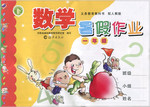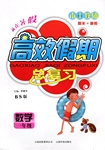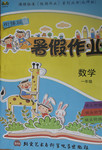题目内容
It seems that no matter when and where, a cat and a mouse just can't get along well. Cats always like
to run after mice; therefore, whenever a mouse meets a cat, the mouse will try to run away as fast as
possible. But, like everything else, there is an exception sometimes.
On day, a young mouse ran around for fun under a tall tree by himself. Maybe because of running too
fast, the mouse accidentally kicked up a small piece of rock. The rock went up to the air then dropped
down hitting a newborn kitten which happened to be taking a nap under the same tree a few feet away
from the mouse's amusing place. The cat's body was covered by the falling leaves so the mouse did not
notice a cat sleeping nearby.
The kitten was only a few weeks old. He had never seen a mouse. After being hit, he woke up and
found that the rock was from another animal.
"What kind of strange animal is it? The inexperienced kitten thought, It must have lots of power as it
could kick up a piece of rock to hit me." The kitten was scared. Without mother by side, the kitten ran
home immediately.
The incident made the young mouse very proud. He told his friends, the other mice, "Everybody says
that a mouse is afraid of a cat, but today a fact proved that a cat was afraid of me." So the mouse
announced that he would not escape any more when he saw a cat again. The young mouse's friends
explained to the young mouse that the rock-hitting case was but an incident. The kitten was too young
to know a mouse. When the kitten grew up becoming a big cat, it would be different. Therefore, the
other mice advised the mouse that he must run away whenever he saw a cat. But the self-important
mouse would not take the advice.
As time went by, after the fall and winter, when the spring came, the kitten had grown up and became
a big cat. One day, when the mouse and several other mice were gathering under the same tree to
discuss something, the former kitten, now a big cat, suddenly showed up. All the mice hurriedly ran away
except the mouse that had frightened away the former kitten. The mouse recognized the cat who was
frightened away by him before, so he remained staying there without escaping.
to run after mice; therefore, whenever a mouse meets a cat, the mouse will try to run away as fast as
possible. But, like everything else, there is an exception sometimes.
On day, a young mouse ran around for fun under a tall tree by himself. Maybe because of running too
fast, the mouse accidentally kicked up a small piece of rock. The rock went up to the air then dropped
down hitting a newborn kitten which happened to be taking a nap under the same tree a few feet away
from the mouse's amusing place. The cat's body was covered by the falling leaves so the mouse did not
notice a cat sleeping nearby.
The kitten was only a few weeks old. He had never seen a mouse. After being hit, he woke up and
found that the rock was from another animal.
"What kind of strange animal is it? The inexperienced kitten thought, It must have lots of power as it
could kick up a piece of rock to hit me." The kitten was scared. Without mother by side, the kitten ran
home immediately.
The incident made the young mouse very proud. He told his friends, the other mice, "Everybody says
that a mouse is afraid of a cat, but today a fact proved that a cat was afraid of me." So the mouse
announced that he would not escape any more when he saw a cat again. The young mouse's friends
explained to the young mouse that the rock-hitting case was but an incident. The kitten was too young
to know a mouse. When the kitten grew up becoming a big cat, it would be different. Therefore, the
other mice advised the mouse that he must run away whenever he saw a cat. But the self-important
mouse would not take the advice.
As time went by, after the fall and winter, when the spring came, the kitten had grown up and became
a big cat. One day, when the mouse and several other mice were gathering under the same tree to
discuss something, the former kitten, now a big cat, suddenly showed up. All the mice hurriedly ran away
except the mouse that had frightened away the former kitten. The mouse recognized the cat who was
frightened away by him before, so he remained staying there without escaping.
1. When was the kitten frightened by the young mouse?
A. In spring
B. In summer
C. In autumn
D. In winter
B. In summer
C. In autumn
D. In winter
2. Why did the mouse dare to play under the tall tree?
A. It knew that the cat was afraid of it.
B. It knew the cat was too young.
C. It didn't know there was a cat
D. It wanted to scare the cat away
B. It knew the cat was too young.
C. It didn't know there was a cat
D. It wanted to scare the cat away
3. What do you think happened in the end?
A. The mouse was killed
B. The cat ran away immediately
C. The cat was defeated
D. The mouse begged for mercy
B. The cat ran away immediately
C. The cat was defeated
D. The mouse begged for mercy
4. What lesson can we learn from the passage?
A. There is an exception to everything
B. It takes only courage to achieve something
C. One can never be strong once frightened
D. One should consider everything before taking action
B. It takes only courage to achieve something
C. One can never be strong once frightened
D. One should consider everything before taking action
1-4: CCAD

练习册系列答案
 暑假作业海燕出版社系列答案
暑假作业海燕出版社系列答案 本土教辅赢在暑假高效假期总复习云南科技出版社系列答案
本土教辅赢在暑假高效假期总复习云南科技出版社系列答案 暑假作业北京艺术与科学电子出版社系列答案
暑假作业北京艺术与科学电子出版社系列答案
相关题目
